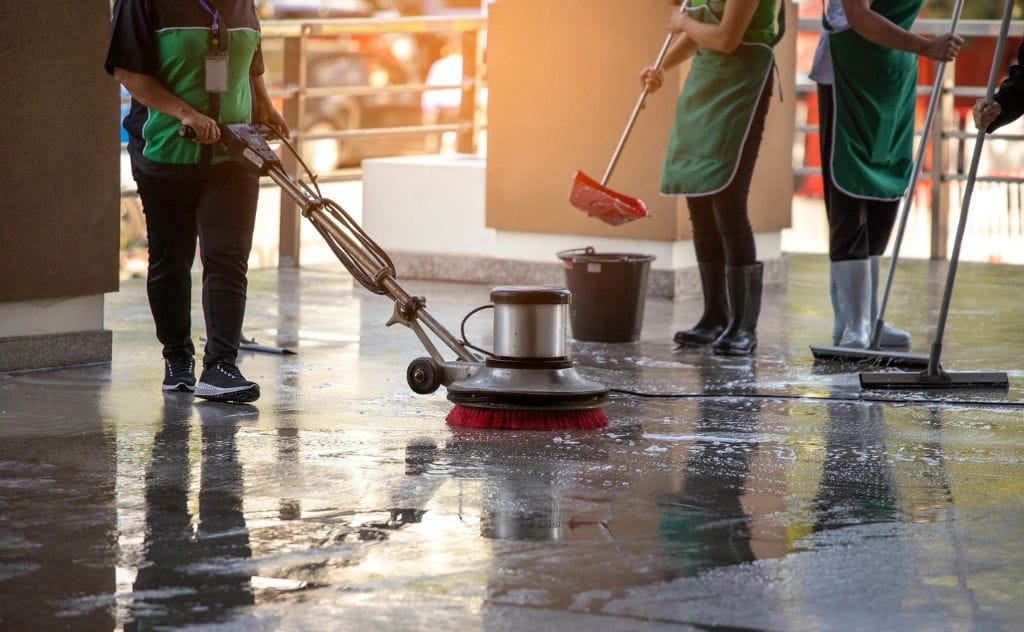A company in Malaysia’s manufacturing sector can lose money for every minute its equipment is not working. Unplanned downtime for factories and production plants with time-sensitive and big production commits can cost thousands of ringgit per hour. While people pay a lot of attention to machinery and automation, very few pay much thought to how clean the operation is. Industrial companies can lower unplanned stops in production, extend equipment life and increase their overall profit by arranging regular deep cleanings, but these services are seldom used.
Recognizing the Losses From System Downtime
In sectors like electronics, palm oil processing, automotive assembly and food manufacturing which are main contributors to Malaysia’s economy, downtime causes more than just inconvenience. It causes significant financial difficulty.
As an illustration, a continuous manufacturing company may lose RM5,000 to RM10,000 each hour production is shut down. Besides mechanical faults, grime, oil residue, dust particles and microbial contaminants in vital systems are often the reason for such service interruptions.
A common reason for unexpected breakdowns is not cleaning key equipment such as conveyor belts, HVAC units and bottling lines, before it breaks down. As Malaysia is humid and tropical, these buildups occur rapidly, mainly where outdoor air and high amounts of particles can enter.
Preventive Cleaning Gives Better Results Than Just Making Things Look Clean
Scheduled deep cleaning aims to clean more than just the surface of things. The goal is to properly sanitise hard-to-access places, clean and support ventilation ducts, maintain machinery and make sure garbage disposal works as it should.
See how this provides value:
- Longer Lifespan
Clear and regular maintenance helps machines to perform their best and stay longer. The presence of dust and grease on parts often makes the equipment overheat or come out of alignment which speeds up its aging. A simple example is when filters in a production-line vacuum machine get clogged, the suction drops and the motor works harder, all of which can be avoided by a regular maintenance schedule.
- Requring Fewer Repairs
Regular cleaning stops emergency repairs and replacements from happening often. A study carried out by the US Department of Energy (DOE) indicates that routine preventive cleaning can lower equipment maintenance expenses by up to 30%.
- More Energy Efficiency
Clogged or dirty systems are less efficient and use more energy. The motor must bear a larger load, run for a longer period and air handling units end up not working properly. Frequent industrial cleaning helps systems run with the planned energy consumption which leads to savings on utility bills.
- Less Risk to Health
Employee health is especially important in facilities such as food processing and electronics assembly; dust or chemical residue might trigger breathing illnesses and touch sensitive products. Having a clean work area helps ensure fewer employees take days off and better follow the health and safety rules.
Applying Industrial Management Knowledge in Actual Malaysian Contexts
Since Malaysia is strongly supporting ESG (Environmental, Social and Governance) and green manufacturing in its new 12th plan, keeping the industrial sector clean is now required. Regular maintenance helps a business remain compliant with rules and builds its global partnerships.
During audits for quality certificates, Halal compliance or supplier checks, the worth of industrial cleaning services becomes very noticeable. Having a schedule for deep cleaning leaves noticeable proof of safety, hygiene and maintenance.
Taking into Account Local Industry Needs for Cleaning
There are many ways to clean and a regular monthly plan doesn’t address all the needs. For example:
The Food & Beverage industry demands daily cleanness and a weekly thorough cleaning of processing devices.
Because electronics are sensitive to dust, HEPA filters and regular anti-static cleaning must be used each week.
Palm Oil Mills are full of grease and organic waste which means they should be cleaned using chemicals once a month.
If a cleaning schedule is customized to fit production schedules, companies can keep downtime during maintenance to a minimum and maximise their effectiveness.
Conclusion
While companies in Malaysia try to boost their output, regular maintenance is generally ignored because of expense. Thus, by understanding how a tidy facility benefits them in the long run, firms are moving their demands for industrial cleaning services from being reactive to preventive.
No matter if your manufacturing site handles high-volume work or intricate tasks, making schedule cleanings a priority is a necessary choice to guard the workforce, assets and the business itself. The ROI is not always eye-catching, but it remains stable, can be checked and forms a critical part of a company’s continuous growth.

